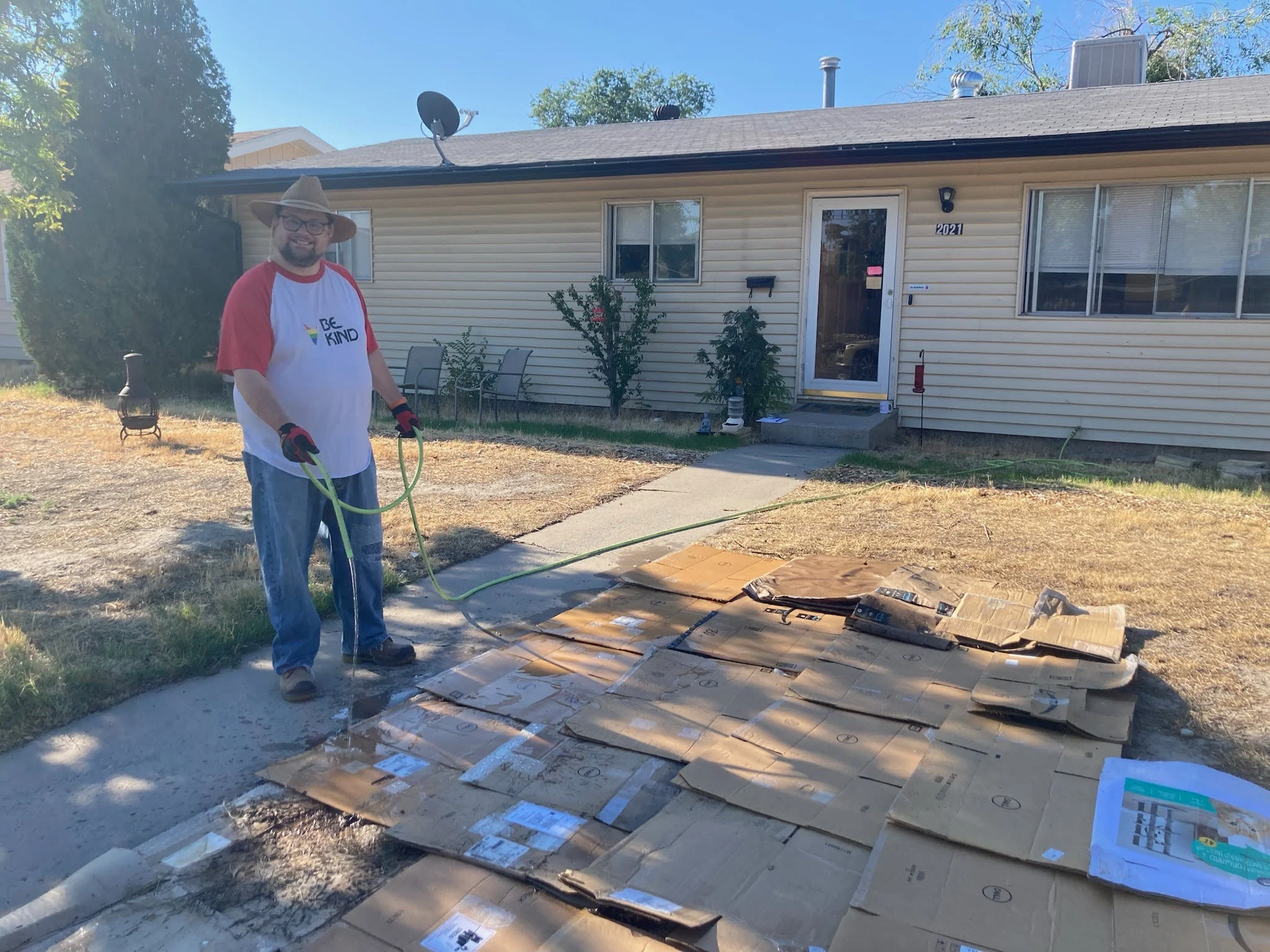crossposted from Reddit:
hi all - my wife and I are doing our best to amend our terrible soil in climate zone 6b/7a (western Colorado, near the Utah border). our logic and philosophy is that at this time we can only do what we can do, so that's making our home as solarpunk and permaculture-centric as possible right now (without losing sight of building collective resilience and empowering the disenfranchised).
to that end, our soil: it's pretty abiotic. to grow food, which is a future goal, we need healthier soil. also we're not flat broke but we're relatively close; being frugal and cheap is a necessity. so we determined that we're going to try to amend our soil using cheap, locally sourced, and recycled things - and maybe more sweat equity than I'd love, ha! we elected to go with the lasagna method.
the lasagna method is to lay down different strata of materials to encourage the breakdown of "brown" and "green" materials, in composting terms. also our yard currently is mostly dirt with a few weeds for good measure, so even if we eff it up, it'll be okay.
I work in IT and my wife's a librarian, so we have access to a LOT of cardboard. I've been collecting it slowly over the summer, and today we decided to lay down our first layer.
here's the plan: lay down a layer of cardboard (brown only, tape and labels as removed as possible) two sheets thick. soak the cardboard so it doesn't blow away in the wind. cover that with a layer of wood chips, which we happen to have from removing a tree along our fence line with our neighbors and chipping it up. the wood chip layer is about two to three inches thick, and then we soak that, too. finally, we cover the wood chips with a layer of greens; for us, this is getting on our local Buy Nothing group and asking for lawn clippings. we are also going to plant fall cover crops and once they have grown in the spring, do a chop-and-drop layer of that.
over time, we will plant a few trees (looking at either a local growers apple variety or a multi-graft we can buy online) and have a rotating group of garden beds.
so that's our plan: a bit of couples labor each weekend over a long period of time, with the hopeful result of improved soil biology and then the growing of native.plants and flowers and food crops.
I hope this is solarpunk enough to warrant this post!
good growing to us all.

basically we googled lasagna gardening/lasagna compost, and did some research on the soil in our area. once we got our head around the basics we just started using what we had on-hand.
I may be way totally out of my depth, so if this sounds wrong, someone correct me. But my thinking is that if you want to create soil, one key consideration would be to try to make sure that the input has the same elemental composition as soil, since the microbial digestion will proceed until the microbes run out of something. So if you have a ton of cardboard, which is mostly carbon, then the digestion will proceed until all nitrogen present is depleted, and then whatever wood chips and cardboard is left will mostly sit there undigested, but won't be broken down until the microbes get more nitrogen.
The target ratio, I believe, is probably pretty close to the Redfield ratio: 106 parts Carbon: 16 parts Nitrogen: 1 part Phosphorous.
From what I see online the composition of wood and cardboard is mostly carbon (plus oxygen and hydrogen, but these aren't nutrients), with very little nitrogen or phosphorous. So for every 6.6 lbs of cardboard or wood chips you use, I think you'll want one pound of nitrogen and one ounce of phosphorous, just mixed in, either as pellets, or powder, or dissolved in the water they're soaked with.
Again, this is all wild speculation. If someone thinks this advice is bad, speak up, I don't want to misinform anyone.
Relatively on the right track, I'd up the nitrogen some so it isn't all tied up in the microbial process, but things will grow